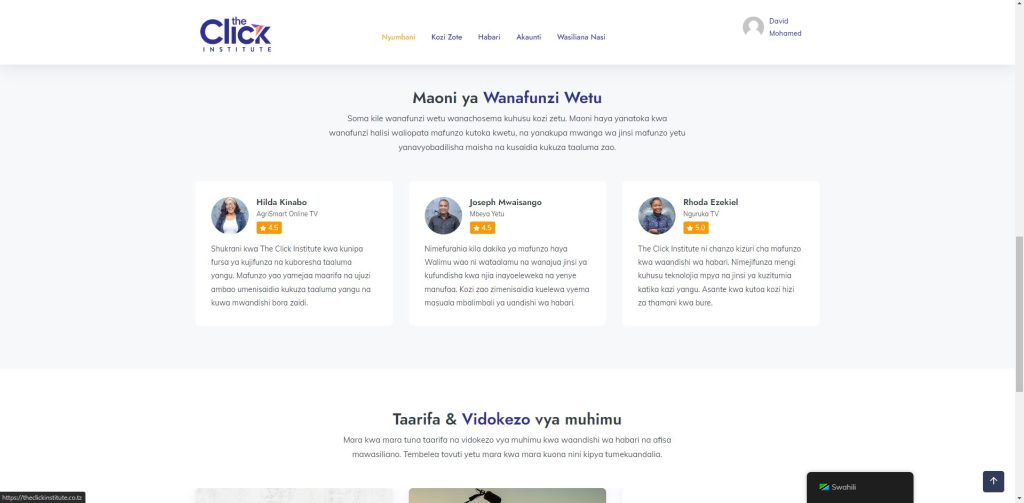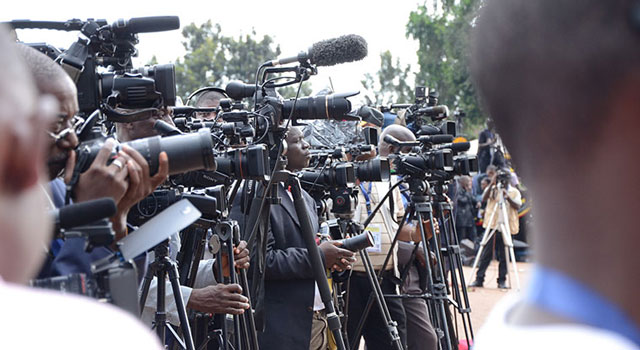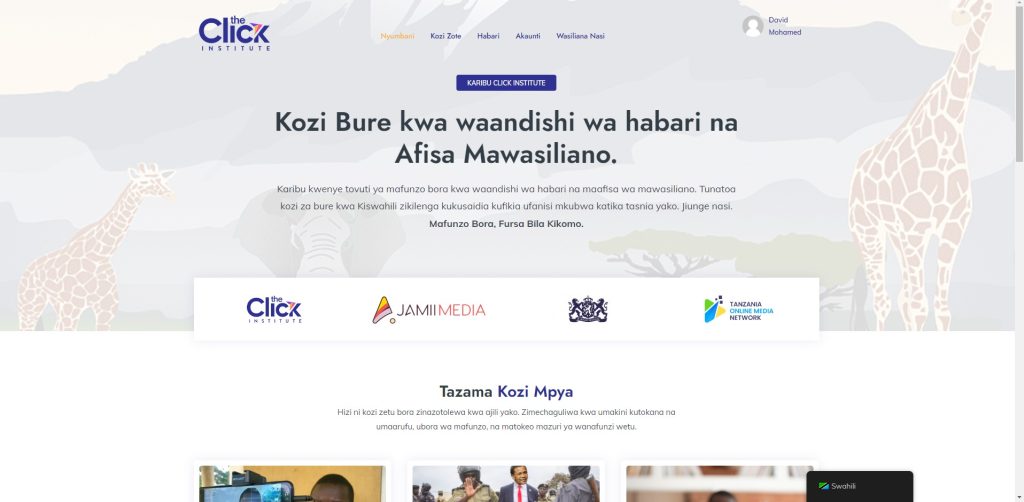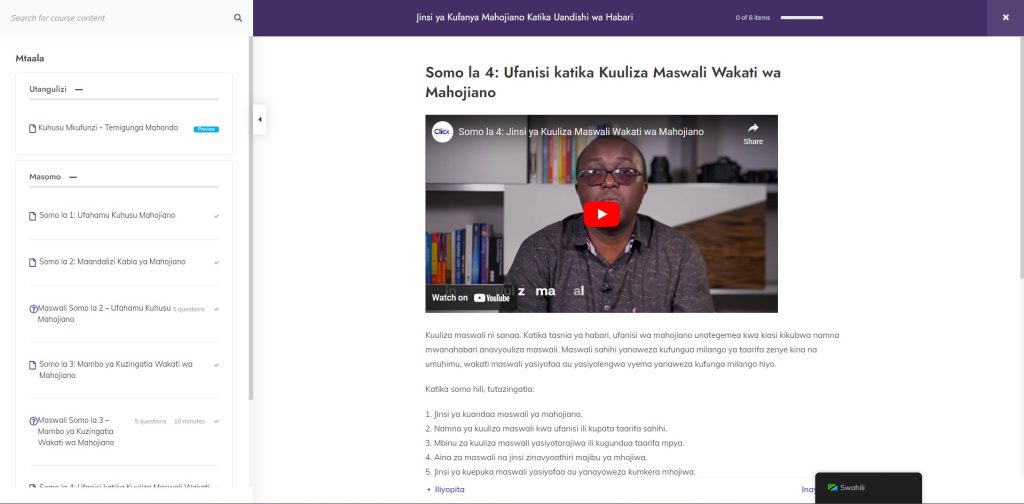Statistics from the National Bureau of Statistics (NBS) show that in contributing to the national income, the growth rate of the media and communications sector surged to 11.3% in the third quarter of 2023, up from 10.8% during the same period in 2022.
The dance between science and technology has not only revamped the media sector but has become a true catalyst, influencing everything from the tools we use to the accessibility of online education. It’s nothing short of a revolution!
While I might not be the Gandalf of media and communications, my roughly 7-year journey in this field has been a rollercoaster of learning. Now, let me spill the tea on a little anecdote. It brings to mind a tale, perhaps akin to a modern-day fable or as one of the Abunuwasi’s stories, but one rooted in undeniable reality.
Picture this: I once had to borrow a relic of a camera, the ancient Sony p2500. Those videos? Don’t even ask, and they were of questionable quality, hahaha! But here’s the kicker – as time marched on, so did the improvement in equipment quality, all thanks to our trusty sidekick, technology! Imagine using a Sony FX3, Canon EOS R5 or Panasonic Lumix GH5 II to produce video documentaries or news coverage. Not even 5% of local journalists in Tanzania reach these levels!
But that’s not all; the story takes an unexpected turn. Imagine the whispers among journalists, the desire for knowledge colliding with financial limitations, and the quest for a platform that bridges this gap.
A New Era in Tanzanian Media Education
A few days ago, luck was on my side as I stumbled upon an email newsletter from “The Click Institute.” This groundbreaking Swahili e-learning platform specializes in self-paced courses tailored for journalists.
In response to the urgent need for advanced journalism skills in Tanzania’s rapidly digitizing landscape, Jamii Media has launched The Click Institute with the support of the Netherlands Embassy in Tanzania. This groundbreaking online platform is a game-changer in media education, offering comprehensive foundational and specialized courses in Swahili to meet the needs of modern journalists and media practitioners.

This expertise is showcased in their successful execution of major projects like the Digital Media Innovation Program and the Boresha Habari Project, where they have demonstrated their ability to adeptly navigate the complexities of media content creation, distribution, and business management.
Explore the Website here.
So, What Inspired the Creation of The Click Institute?
Through its training, Jamii Media noted that less than 10% of initially trained media personnel attended subsequent sessions due to frequent job transitions. This trend underscored the industry’s volatile nature and disrupted the continuity of learning. The Click Institute, born from this recognition, strategically addresses the turnover and retrenchment issues, becoming a stabilizing force in Tanzanian media education.
The Click Institute is Jamii Media’s answer to Tanzania’s growing demand for skilled media professionals. A staggering response of over 430 applications for the Digital Media Innovation Program (DMIP), which only had room for 20 online media, revealed a significant gap in scalable media education.
Expert-Led Courses: The Essence of Real-World Learning
One of the standout features of platforms like The Click Institute is their offering of expert-led courses. These courses are designed and taught by seasoned professionals from the media industry, providing learners with an unparalleled depth of knowledge and insight. Learning from experts ensures that the course content is relevant and up-to-date and offers students a glimpse into real-world applications of their skills.
These professionals bring a wealth of experience, practical examples, and a nuanced understanding of the industry, significantly enriching the learning experience. For students, this means learning the theoretical aspects of media and journalism and understanding how these principles are applied in real-world scenarios. This direct connection with industry leaders and veterans can immensely motivate and inspire learners, often opening doors to mentorship opportunities and professional networking.
At present, The Click Institute offers courses that you can get started with:
- Mobile Journalism (Photography, Videography, Sound Recording, and Editing)
- Fake News – Understanding the Meaning, Impacts, and How to Counter It.
- How to Conduct Interviews in Journalism.
- What is News? Understanding its Meaning and Role.
Currently, The Click Institute is looking to expand its course list to include:
- Introduction to Investigative Journalism: Journalism as a Watchdog.
- Sustainable Monetization and Business Models for Media Outlets.
- Climate Reporting Master Class.
- Safety and Security for Journalists.
- Gender-Sensitive Journalism.
- Introduction to Digital Journalism.
- Introduction to Public Interest Journalism.
- Media Laws and Copyright Journalism in Media.
- Data Journalism for Civic Impact.
- Grassroots Reporting: Empowering Local Voices.
- Civic Journalism: Engaging Communities in Democratic Dialogue.
- Storytelling for Social Change.
- Environmental Journalism and Green Growth Reporting.
- Trauma-Informed Journalism.
What Does Our Education System Expect From The Click Institution?
With Tanzania moving towards a digital-centric society, digital journalism skills have become indispensable. The Click Institute’s curriculum is designed to equip journalists with the digital competencies for effective information gathering, distribution, and consumption in an increasingly online world. It addresses the challenges posed by the lack of digital training in traditional educational settings, inadequate digital resources, and the spread of misinformation.
The Click Institute’s mission transcends traditional education. It aims to bridge the skill gap in Tanzania’s media sector, catering to newcomers and seasoned professionals. This comprehensive approach is crucial in an industry characterized by rapid evolution and the need for ongoing skill development.
Adapting to modern lifestyle in today’s fast-paced world, flexibility in education is not just a convenience but a necessity. Recognizing this, platforms like The Click Institute offer self-paced courses that allow learners to fit their education into their busy schedules. This approach to learning is particularly beneficial for working professionals and students who need to balance multiple commitments.
Self-paced learning means students can progress through courses at their own speed, without the pressure of fixed class times or submission deadlines. This flexibility empowers learners to manage their time effectively and reduces the stress associated with traditional learning environments.
An Invitation for Growth and Collaboration
As it embarks on this transformative journey, The Click Institute has extended an invitation for collaborations and partnerships. This platform is not just about education – it’s a catalyst for a well-informed, skilled, and dynamic media environment in Tanzania.
Through The Click Institute platform, there is significant potential for the government and various developmental organizations to support these efforts to empower Tanzanians. A partnership could help expand the range of courses to reach more learners in journalism, providing them with broader knowledge.
Even with the DMIP Project, selecting only 20 people for journalism training is a modest empowerment effort compared to the vast number and size of local journalists seeking further education. I believe exploring additional ways to empower this project to reach even more individuals is necessary.
We need to see a transformation in the media industry, which begins with empowering journalists to acquire education and knowledge. The question remains: who will take the lead in empowering them? Shall we continue relying on “Makanjanja” in this career? However, in all this, change begins with journalists themselves! The answer lies in the hands of those who recognize the need for change, the need for a new era of journalism, and The Click Institute is leading the way.
Also read TCRA’s 2023 Report: Internet and Social Media Usage, Should We Expect Rising Cyber Threats?



